2-28-18
Raoul Peck and The Young Karl Marx: The Dialectics of Storytelling
By Diane Sippl
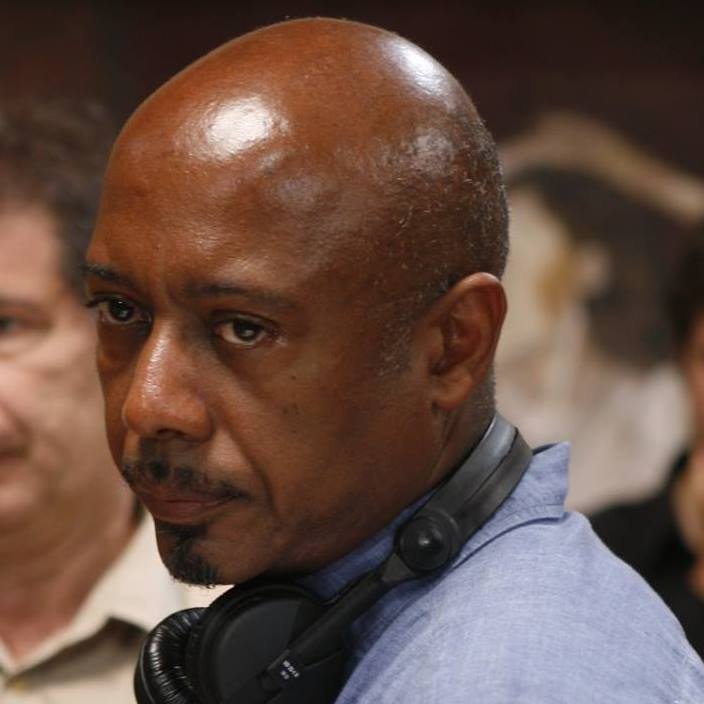
A serious thinker sits over a chessboard – kings, queens, knights, bishops, and pawns – in a mid-nineteenth-century tavern. It could be Karl Marx in the company of Friedrich Engels, pondering the next move after the printing press and the textile factory were changing the world in the Industrial Revolution. Or it could be biographer Raoul Peck on set, contemplating his strategies for sharing his vast reading and long-lasting study of Marx with as big an audience as possible. After all, the screen – from the nickelodeon to the cinerama to cell phone watches – also revolutionized the ways we view history.
Writer-director-producer Raoul Peck, Haitian-born, raised in Congo and the U.S., educated in Berlin and Paris and working worldwide, has employed cinema at its utmost capacity to create award-winning films such as the landmark Lumumba (2000), about Congo’s first democratically-elected Prime Minister, and the loving, piercing I Am Not Your Negro (2016), about one of America’s foremost writers and activists, James Baldwin.
Now, with French co-writer Pascal Bonitzer, a stunning team of German actors – August Diehl, Stefan Konarske, Vicky Krieps, and Alexander Scheer – British actress Hannah Steele, and famed Belgian actor Olivier Gourmet, Raoul Peck brings us The Young Karl Marx. Densely illuminating, fascinating, and compelling, the theatrical film follows Marx’s struggles across Europe as he combined thought and deed, word and action, to arrive at and publish the Communist Manifesto. We see how Marx and his astutely political wife, Jenny meet Friedrich Engels, son of a factory owner, and Molly Burns, a disenfranchised worker there. With wit and humor in their theorizing, their banter, and their strategies in confronting the labor leaders of the era, this intimate chronicle of their toil and setbacks, full of surprises, is nothing short of dialectical.
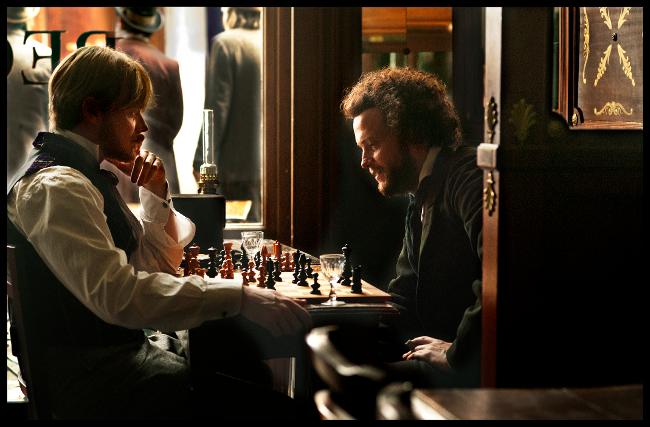
What follows are excerpts from a post-screening dialogue between Raoul Peck and his audience on February 28, 2018 moderated by Carlos Aguilar but later edited by me with my own reflections.
KINOCaviar What brings a filmmaker – or anyone – to develop a work about Karl Marx today?
Raoul Peck The impetus of most of my films has been what was happening around me. I started this project ten years ago, about the same time I started working on the film about James Baldwin. Both projects were very important to me because both Marx and Baldwin have had an incredible influence on me – on my life, my politics, my way to think. I read Baldwin when I was 18. When I was 21, I was studying in Berlin and I did four years of Capital seminar. At the time Berlin was a very political scene: most of the liberation movements were there – ANC, SWAPO. Latin American movements were there – Chilean, Brazilian, Nicaraguan. It was a city where a lot was happening, all the time, and not knowing the foundation of this, the writings of Marx, would have been impossible. Since then, I was really structured by that, and what I keep from those days is basically the instruments, the analysis instruments, which are still effective today, and needed.
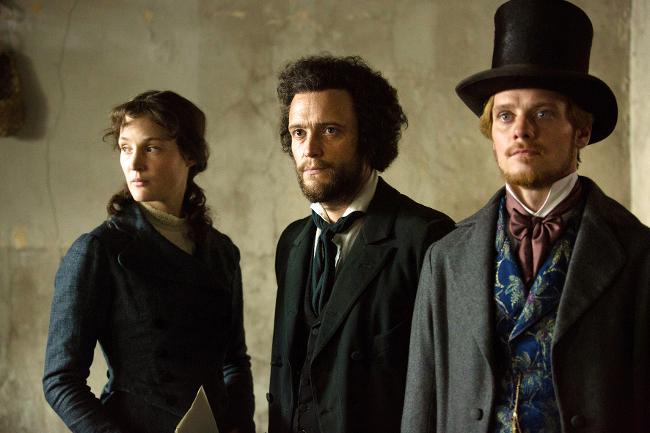
KC Peck has said that the film is based on transcripts and quotes and letters, but these, of course, had to be selected and shaped into a screenplay, and he chose to focus on Marx’s younger days rather than on those of the older philosopher. We might wonder why.
RP Well, when we started the project, words like “class struggle” and “profit” were almost taboo – until after 2009. Then economic magazines had Karl Marx on their covers. But still, there was no way we would even try to make a film of a bearded old man and all the monstrosities that happened with his name. My goal was to bring him back into the discussion today. In making a two-hour film, it’s difficult to try to explain him, so I had to make choices. The time he is in the film – those five or six years – were the most important.
That was the beginning of the ideas, the confrontation with real life, and with the organization of the movement; it did not exist before that. All the leaders before, like Proudhon and Weitling, were artisans. They were not workers. It was the beginning of the Industrial Revolution – that’s when Marx and Engels came in.
For the film, we didn’t want to make the usual bio-pic, in the form that is commonly used in this country. That was not my idea, because it’s something that closes down everything, and the story goes forward through sentiment, action – and my film is the contrary. So we had to find a way to make it a film about the evolution of ideas but still to have suspense, to have some sort of – to give importance to words, so that the discussion could be passionate and interesting. As with all my films, I didn’t want any “experts” talking in the place of Baldwin or Marx. So this film relies mostly on the correspondence – the letters between Marx, Engels, and Jenny, and sometimes Mary. The idea was to really grasp the reality of their lives and their emotions and how they were as human beings.
KC Even though Marx and Baldwin came from two separate continents and lived in two separate centuries, we can’t help but wonder if Raoul Peck, researching both their lives at the same time, (albeit for two separate films), saw any connections between the two writers and activists.
RP You can’t really compare them. Marx is a monument. He’s a kind of mind that comes every 300 years. He was a genius. You know, he got his PhD when he was 19. At that time in Europe, philosophy was very high, and politics as well, and his teachers were saying, “If you want to meet Voltaire, Diderot, Rousseau, Hegel, in one person, you should meet Marx.” That’s the kind of brain he was, so there’s no comparison. And later on, he was recognized very openly by everybody. When he finished the first Capital tome, he sent it to Darwin, and Darwin wrote back that he was hoping that their two books would help toward a better world.
So Marx was really a phenomenon, and the fact is that what he did with Engels and others was to try to devise a science, or an analysis, of this particular, specific historical society, which is the capitalist society, which he defined, and we are still in it. So that’s why all those analyses are still very accurate. It’s a matter of how we use those instruments and do our own analysis. But this is also something that he loves.
You know, Marx hated dogmas; he hated stuff that was defined once and for all. The idea is always to take the data of today – you know, why do workers vote for Trump, how is the wealth distributed, how does the economy function, what are the relations with foreign countries in terms of the balance of merchandise? That analysis needs to be done again and again, because capitalism also evolves. After each crisis, it finds new forms. It continues to generate forms. That’s how the system works.
That’s why my film is for today. It’s not a film toward the past, but about how we can deal with what’s happening in our lives today, and not only in the United States, but also in places like Haiti, Congo, Europe. By the way, the attempt with both Baldwin and Marx was also to take a little bit of distance – not to be in this daily Twitter, Facebook, and CNN message every ten minutes but to see the bigger picture, and we hardly have time to do that anymore. That’s what is killing us as well. We are running behind something that is never-ending and that we will never really grasp unless we take some distance to it. We have become, in the last 30 or 40 years, perfect consumers, and that’s something that started to happen many decades ago. So the film – both films, in fact – are a way to connect the dots again, to show us the bigger picture, and maybe – maybe – we will be able to get together again and find solutions.
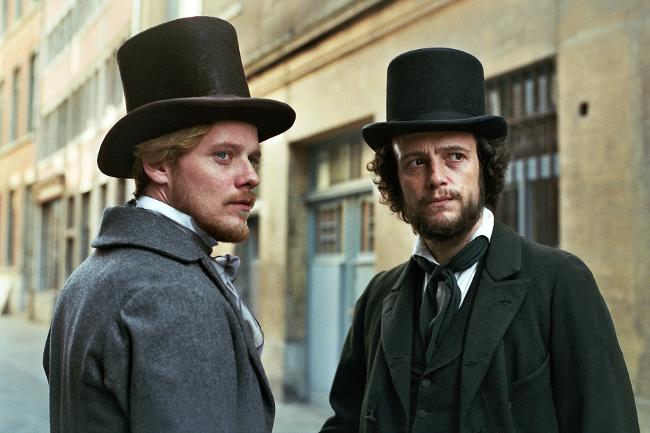
KC Another question arises as to whether Raoul Peck, making films across the world (from Haiti to Congo to the United States to Europe) and across genres (from documentaries to theatrical films) would see his projects linked.
RP Well for me, again, this film shows the basis. You know, everything in terms of substance and analysis – everything comes from Marx’s work, and most of sociology for today is totally impacted by that. We don’t realize that, but even when you hear the kids in Florida, when they understand the relationship between campaign money, the NRA, profit, and the fact that politicians don’t want to vote for those laws – that’s a clear capitalism analysis, of how the system functions, and how the state itself plays a role in that system.
So for me Marx is, of course, the fundamental place to start. In my whole life, I always asked, in any situation, where does the money come from? Or where is the profit? And then you can explain any decision that is taken. And that’s clear in every subject, whether it’s racism, whether it’s feminism, because we live in a very particular society which has its own rules, basically profit – everything is based on profit. And Marx has this wonderful sentence, which is to say that in this society, even human relationships have become merchandise. We can see it in our daily lives. So knowing this is really for me an incredible arm, to defend yourself, to understand what’s going on.
KC Raoul Peck, having grown up, studied, worked, and lived in diverse countries, is himself fluent in many languages. Yet was there any challenge in writing and directing a completely trilingual film?
RP Well I wanted to be authentic, to recreate the exact feelings of the time, so we had to be inside the story, and not as observers, and I wanted the actors to be at ease with the different languages because that was Europe at the time. Although it was hard to travel then, at the same time you had people from all over Europe, and also the U.S., who had great relationships. You know, Jenny’s brother went to the U.S, to try to have a new life. So people traveled, and they’d write to each other, and when you read the actual letters between Marx, Engels, and Jenny, you see they very often use another language besides German; a phrase pops up in English or French, or a word, and that was part of how they lived.
So from the start I knew that I would choose actors who really spoke all three languages. I didn’t want to dub. I didn’t want any translation. They had to be totally fit for all three languages, which they were. And August, I’ve known for a long time; I’ve been following him over the years. He’s an incredible stage actor. And Stefan, also – he’s less known, but he’s a great actor in Germany. And Vicky – she’s the youngest – we shot before Phantom Thread, so I "discovered" her. She’s an incredible actress.
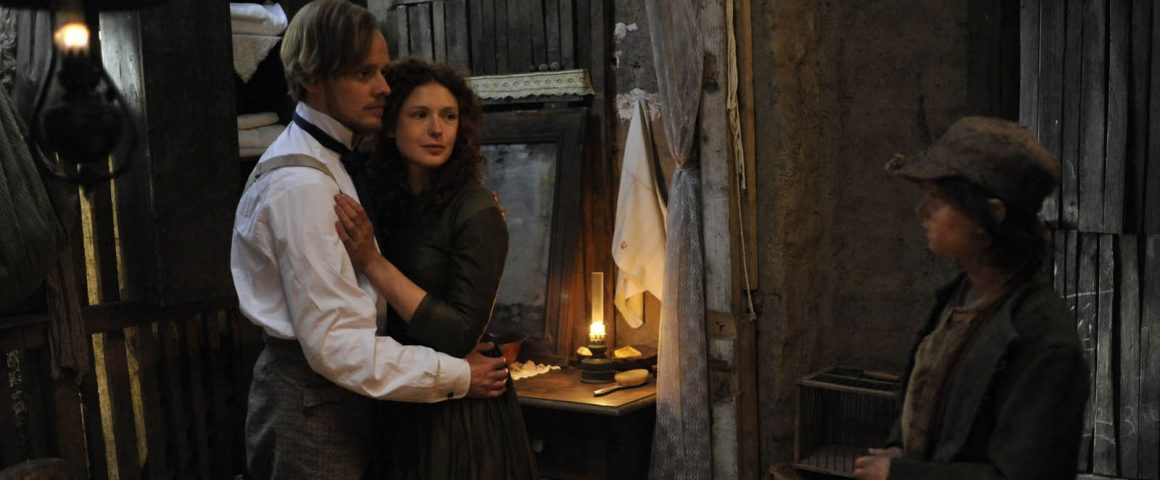
KC Aside from the expressions in other languages that peppered the correspondence, we might ask how the personalities of Marx, Engels, and Jenny colored their letters to each other.
RP Well they were young – That’s the thing people don’t understand. They were in their twenties, and Engels was a womanizer; he had all sorts of relationships with women, and he would write about them. And their letters were sometimes, of course, about struggle, about theory, about journalism, but also about their lives, about anger, and they were funny a lot of the time, so the film had to have that, too. It’s not a dark film about world revolution, and that’s maybe something we lost in the process, through all these years, from the Russian Revolution and all the massacres and the dogma – we lost that side, of free-thinking. You know those young people, they were free thinkers, they were democrats, and they would probably have been the first to be executed in all those revolutions.
KC Not unlike the montage of still shots of numerous African American people living today that Peck inserts into his film, I Am Not Your Negro, an updated montage ends The Young Karl Marx as well. Dynamic as it is, it provokes diverse responses.
RP Well I always try, in all my films, to come back to today, to take the people to the real idea of the film – it’s to reflect on today, and to connect the dots that we have lost along the way, about the link between what happened at the beginning of this Industrial Revolution and today – there is a clear link to those first sentences in the Communist Manifesto, that the history of capitalism is the history of class struggles, and you can see that in those images in my montage, from crisis to crisis, from war to war, from colonialism, assassinations, coups d'état, etc., to the sub-prime to the migrants crisis. All these are linked. Mandela spending half his life in prison, and apartheid regimes that were supported by the same people who supposedly defended democracy elsewhere – all those contradictions – that’s part of the system. And we need, really, to connect the dots.
Today everything is at the same level. And since the Berlin Wall went down (although they do want to build new walls), capitalism has won. There was no more limit. Russia, China, are totally capitalist. Maybe they are ruled differently, they are authoritarian regimes, but they are capitalist. They hang in the world system. A crisis will have consequences everywhere, in those countries, too. So it is important to know that there are names, there are structures, there are laws, there is a science about that, about how capitalism functions. And it’s not like – the example I like to use is that the scholar or the scientist who has worked 40 years of his life on climate change is put exactly at the same level as the President who says it’s a hoax. And for most people, those are opinions; you can have opinions without having to prove anything.
KC In the context of such irrationality, we ask, how does The Young Karl Marx fare in the U.S. today?
RP Well at the beginning I never thought we would ever sell it to the U.S. So it happened, and I’m very happy about that. You know it’s a big country, and if you look in the literature that is produced today, there are extremely interesting works about what is happening now, but usually people don’t have access to that. You have to look for that. So there are people who are fighting. There are people who are analyzing. And there were people before, and I went to them first. I feel like today we are in a world of ignorance. That’s why I like the phrase of Marx: “Ignorance never helped anybody.” We need to know in what world we are living; otherwise it’s just a waste.
I’m not a prophet. What I can say is that whatever will happen will depend on our reaction to what’s going on. There is no magic. The mood of this country and most western countries – I think there is a total separation between what is happening in Western countries and the rest of the world. You have people in countries like Haiti, my country, or in Congo or elsewhere, where those populations – they can’t take it anymore, and they will explode. In Europe or in the U.S. we think that building walls is the answer. People come up with very cheap solutions, populist solutions that are not solutions. And I understand – they feel threatened and they are very open to simplified answers. They say, “What if I build a wall? You will get your job back and everything will be good.” And there are people – yes – they tend to believe in that. And that’s because we are in a time of populism, in this country and in Europe as well.
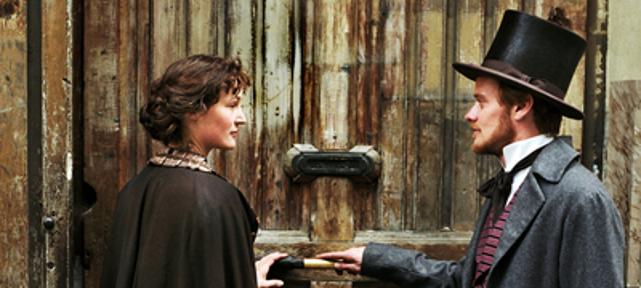
So yes, we are in great danger today. We have accepted our comfort too much. We have become perfect consumers, and you can see that at many levels. And my case (not only mine) is that this big shift that happened in the ‘70s, the first oil crisis – that was an important shift. People didn’t realize how bad it was and what it provoked. You had Reagan, you had Thatcher, you had deregulation, assault on unions, cutting all budgets, especially social programs, and this is the result that we have today. This is linked. The concentration in all the press – television, newspapers – everything became for profit. Everything has to be rationalized.
And now we are in this acceleration, the last 20 years, with the Internet as well as in the science world. Today there is an acceleration you cannot stop because now it’s the algorithm doing the job. We don’t even need human beings to speculate. So the bus is driving at 400 miles an hour, with no driver, and yes, the only response is the response that we can collectively bring. But there is no magic in that.
In the tradition of resistance in this country, we don’t see it as class struggle, but it was class struggle – the Civil War, the Civil Rights Movement, where people from different origins came together, from different political positions: there were communists, there were church people, there were black and white, and that created a movement. And they took risks. When young students went into the South, knowing that they could be killed, they took risks. Today it’s less and less. Young kids – Black Lives Matter – they take risks. In the Baldwin film there is a sentence by Baldwin, watching this young girl going to this high school, a black girl. She’s 15. And his reaction was, “Some of us should have been there with her.” And that’s what I feel is happening right now, when our young people in Florida and the young people in Black Lives Matter are all alone in the streets, and we are watching. So I do see the Western world going in this direction and it’s very dark, and what democracy has become as well.
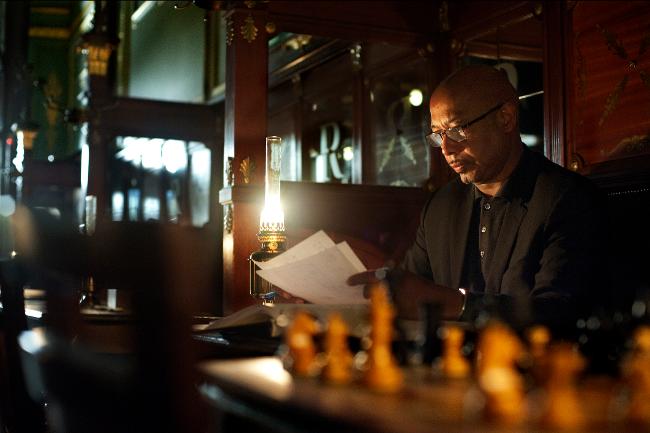
Is it possible to achieve democracy in a capitalist system?
Democracy was never that innocent. Again, I come from Haiti, and at the same time the American administration was promoting democracy in Europe, it was supporting the dictatorship in my country. I learned very early that “democracy” was not innocent. I made my film on Lumumba, the first real democratically elected Prime Minister of Congo, in 1960, who was killed in 1961; all he had asked at the time was to be really independent. And he didn’t want to choose between the Russians and the Americans. He wanted to be the head of his country, and in a very democratic way, but they didn’t let him. So this whole story is very troublesome. What is democracy today, when people go less and less to vote, and where in other countries they fought and they died for the capacity of voting?
And again, The Young Karl Marx is a true story. A lot of the dialogues are taken from the argumentation of the letters; those words, I didn’t invent. Those were real events, real issues. The scene where Marx faked his being angry, where he said, “Ignorance never helped anybody,” is totally, exactly reproduced. It’s described in a letter from the Russian sitting on the couch, who wrote it down. It’s a multi-page letter where all these dialogues are.
What Marx is bringing to the movement is what he called a “scientific socialism.” And the two other heads used in the film, although I simplify it, of course, are Weitling on one side, who is a typically populist and even mystical type of socialist, if you can call it that, and Proudhon, who’s more on the utopist side and will go to the anarchist side. So those are three big directions, and you have everything in between, of course. I wanted to show, at least, the newness of Karl Marx’s approach, the more scientific approach. Today, no matter what others have done with his work, it’s still fundamental. For me, it should be part of your general knowledge, independent of your political inclination. This is even more important for me than reading Rousseau, Diderot, Thoreau, and all the other great minds of the century.
The Young Karl Marx
Director: Raoul Peck; Producers: Nicolas Blanc, Rémy Grellety, Raoul Peck, and Robert Guédiguian; Screenplay: Pascal Bonitzer and Raoul Peck; Cinematographer: Kolja Brandt; Editor: Frédérique Broos; Sound: Jörg Theil; Costume Design: Paule Mangenot; Hair Design/Make-up Design: Anne Moralis.
Cast: August Diehl, Stefan Konarske, Vicky Krieps, Hannah Steele, Olivier Gourmet, Alexander Scheer.
Color, Scope, 118 min. In German, French, and English with English subtitles.